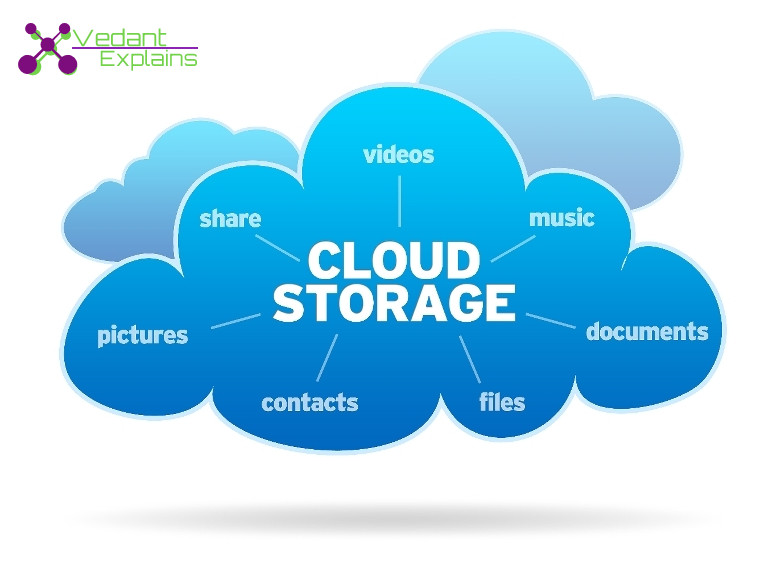As cloud computing continues to evolve, the demand for reliable, secure, and cost-effective cloud storage solutions has never been higher. Open source cloud storage software offers flexibility, transparency, and control, making it an attractive option for many users and organizations. Here is a list of 16 open source cloud storage software for Linux in 2024 that cater to various needs, from personal use to enterprise-level applications.
1. Nextcloud
Nextcloud is a powerful and flexible cloud storage solution that allows users to host their own cloud storage. It offers features like file synchronization, sharing, and collaboration tools, along with robust security and privacy controls. It supports integration with other services and applications, making it highly customizable.
2. ownCloud
ownCloud is another popular self-hosted cloud storage platform similar to Nextcloud. It provides file syncing, sharing, and collaborative editing, along with support for plugins and extensions to enhance its functionality. It is known for its user-friendly interface and extensive security features.
3. Seafile
Seafile is a high-performance, secure, and reliable cloud storage solution. It offers file synchronization, sharing, and team collaboration features. Seafile uses a unique file storage mechanism that ensures efficient use of disk space and fast access to files.
4. Pydio Cells
Pydio Cells is an enterprise-grade file sharing and synchronization solution. It provides a secure, scalable, and user-friendly platform for managing and sharing files. Pydio Cells supports integration with various authentication and authorization systems, making it suitable for enterprise environments.
5. Ceph
Ceph is a highly scalable and distributed storage system designed for large-scale deployments. It provides object, block, and file storage in a unified system. Ceph is known for its fault tolerance, high availability, and self-healing capabilities, making it ideal for cloud infrastructure.
6. GlusterFS
GlusterFS is a scalable and distributed file system designed to handle large amounts of data. It aggregates various storage resources into a single global namespace, allowing for seamless scaling and data management. GlusterFS is suitable for cloud storage, big data, and media streaming applications.
7. MinIO
MinIO is a high-performance, distributed object storage system. It is compatible with the Amazon S3 API, making it easy to integrate with existing S3-compatible applications. MinIO is designed for high scalability and performance, making it ideal for modern cloud-native applications.
8. OpenStack Swift
OpenStack Swift is an open source object storage system designed to store and retrieve large amounts of data. It is part of the OpenStack cloud computing platform and provides a highly scalable, redundant, and durable storage solution.
9. Zenko
Zenko is an open source multi-cloud data controller. It provides a unified interface for managing data across different cloud storage services. Zenko supports multiple backends, including Amazon S3, Microsoft Azure, Google Cloud Storage, and more, making it easy to manage and migrate data across various cloud providers.
10. OwnBackup
OwnBackup is a comprehensive backup and recovery solution for cloud data. It supports various cloud platforms and provides automated, secure, and reliable backup and recovery services. OwnBackup is designed to protect data from loss, corruption, and other disasters.
11. FreeNAS/TrueNAS
FreeNAS (now TrueNAS) is a powerful, free, and open source NAS (Network-Attached Storage) operating system based on FreeBSD. It provides enterprise-grade storage features, including support for various file sharing protocols, data protection, and virtualization.
12. Syncthing
Syncthing is a decentralized file synchronization tool that allows users to sync files between multiple devices. It is easy to use, secure, and provides real-time synchronization. Syncthing is ideal for users who want to keep their data in sync across multiple devices without relying on a central server.
13. BTSync (Resilio Sync)
BTSync, now known as Resilio Sync, is a peer-to-peer file synchronization tool. It uses the BitTorrent protocol to sync files between devices, ensuring fast and reliable transfers. Resilio Sync is suitable for both personal and business use, offering advanced features for secure and efficient file syncing.
14. SeaweedFS
SeaweedFS is a simple and highly scalable distributed file system. It is designed to handle large amounts of small files efficiently. SeaweedFS provides fast access to files and can be used as a cloud storage backend for various applications.
15. XtreemFS
XtreemFS is a distributed file system that provides high availability and scalability. It is designed to handle large-scale storage requirements and offers features like file replication, snapshotting, and multi-tenancy. XtreemFS is suitable for cloud storage, big data, and scientific computing applications.
16. OpenIO
OpenIO is a software-defined storage solution that provides object storage with high performance and scalability. It supports a wide range of use cases, from backup and archiving to cloud-native applications. OpenIO is designed to be flexible and easy to integrate with existing infrastructure.
Conclusion
These 16 open source cloud storage solutions offer a wide range of features and capabilities, making them suitable for various use cases, from personal file storage to enterprise-grade data management. Whether you need a simple file sync tool or a highly scalable distributed storage system, there is an open source solution available to meet your needs.
